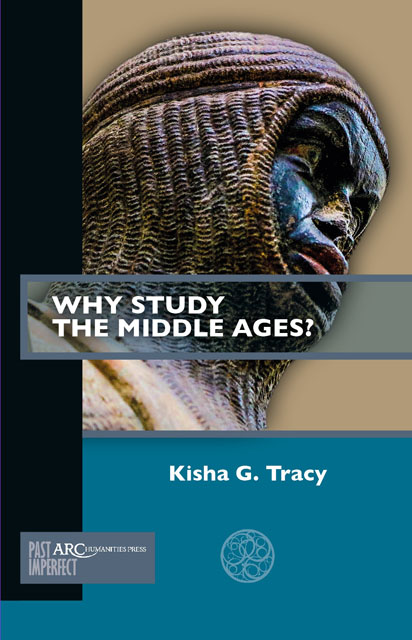Book contents
- Frontmatter
- Contents
- Introduction: The Middle Ages and the Liberal Arts
- Chapter 1 The Middle Ages and the Humanities
- Chapter 2 The Middle Ages and STEM
- Chapter 3 The Middle Ages and the Social Sciences
- Chapter 4 The Significance of Studying the Middle Ages
- Conclusion: The Connections among the Arts
- Further Reading
Chapter 2 - The Middle Ages and STEM
Published online by Cambridge University Press: 06 December 2022
- Frontmatter
- Contents
- Introduction: The Middle Ages and the Liberal Arts
- Chapter 1 The Middle Ages and the Humanities
- Chapter 2 The Middle Ages and STEM
- Chapter 3 The Middle Ages and the Social Sciences
- Chapter 4 The Significance of Studying the Middle Ages
- Conclusion: The Connections among the Arts
- Further Reading
Summary
Not only did they not have the technology that we do now, but I assumed that we know a vast amount more than they did because of that lack of technology. Although at a first glance it may seem true, the idea that those providing the information back then, such as historians and scientists, were all wrong and did not make advances in their time is an unfortunate notion. In each generation, we are gifted with many influential persons who bring about changes in our current era of the world. Why would it be different during the medieval time?
Anonymous studentThe medieval has a prominent role to play in science, technology, engineering, and mathematics, whether it is in terms of the historical foundations of study, new discoveries, or the recognition and understanding of chronological patterns. The Middle Ages operates before certain major technological inventions and yet individuals exhibit scientific inquiry. Aspects of STEM existed or are anticipated in this period, sometimes in sophisticated forms, particularly in the East although not exclusively so. The Middle Ages is the time of transfer from oral to written (then to printed) text. This shift in technology is essential to the study of literature, storytelling, individualism, identity, memory, book production, and so much more. We require humility in recognizing the achievements of civilizations before our “tools of progress” made certain activities comparatively “easy” and second nature.
The very image of technological progress is sometimes misleading. The printing press saved us time; therefore, it is better than handwriting. The internet makes life easier; therefore, it must be better than the time before the internet. This sense of constant updates in technology contributes to the thought that we must be progressing as a species and can mask the connections that motivate the purposes of invention.
Beyond the intellectual origins of STEM that existed in the medieval period, we must recognize the knowledge generated from the period. Modern scientists and mathematicians are more and more looking to the Middle Ages to inform their research questions. Doctors have been reading and testing medieval medical recipes. Epidemiologists, especially in the covid era, look to medieval pandemics to understand health statistics, including the effect of the Plague outside of Europe.
- Type
- Chapter
- Information
- Why Study the Middle Ages? , pp. 43 - 68Publisher: Amsterdam University PressPrint publication year: 2022



